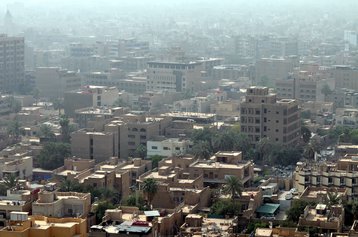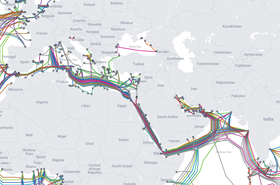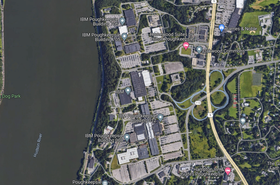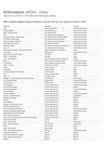A recent report from Cloudflare revealed that government-directed shutdowns took place during exam periods in Iran, Algeria, and Syria.
The report explained that, over the last decade, governments have taken aggressive action to prevent cheating by enforcing nationwide shutdowns across multi-week exam periods.
Syria
In Syria, the Syrian Telecom Company publishes an exam schedule on social media. The schedule details the date and time of each Internet “disconnection.”
In 2024, the exams started on May 26 and went on until June 13. Shutdowns lasted for multi-hour periods during these three weeks.
Syrian Telecom is effectively the only Internet service provider in the country and while there are a few other autonomous systems, there are only two that currently announce IP address space to the public Internet.
Internet traffic during that period dropped to zero during scheduled shutdown times.
The report added the shutdowns in Syria are asymmetrical; meaning traffic can exit the country, but there are no paths for responses to return.
Syria implements its Internet shutdowns not through filtering, but by not announcing IP address space for the duration of the shutdown.
Therefore, no responses can return to the originating requester, whether client application, web browser, or local DNS resolver.
Iraq
In Iraq, the Ministry of Communication said: “The Ministry of Communication would like to note that the Internet service will be cut off for two hours during the general exam for intermediate studies, from six in the morning until eight in the morning, based on higher directives and at the request of the Ministry of Education.”
The previous year, the Ministry of Education’s request to shut down the Internet was refused by the Ministry of Communication.
Iraq has a much richer network service provider environment than Syria, with more than 150 autonomous systems registered in the country and announcing IP address space.
Although traffic in Iraq is generally concentrated among the larger providers, shutdowns are rarely complete, because not every network provider in the country implements the shutdown.
Traffic typically drops around 87 percent according to the report.
Data suggests that traffic patterns are not always visibly changing, suggesting that responses from the resolver are getting back to the clients.
However, this may not be the case and is most likely an artifact of the graph’s time frame and hourly granularity.
The report also includes resolver traffic from Kurdish network providers, which do not always abide by government-directed shutdowns.
Iran’s options for disrupting connectivity include blocking packets from reaching IP addresses, block connections based on SNI/HTTP headers, or applying restrictions on content and hostnames associated with websites.
Algeria
The report said Algeria has had a history of disrupting Internet connectivity during Baccalaureate exams since 2018.
This came after widespread cheating in 2016 saw questions leaked online both before and during examinations.
Internet disruptions were observed both country-wide and at a network level.
The report added that whilst it is not possible to see exactly how the observed Internet disruptions are being implemented, it is likely that network providers in Algeria are in someway interfering with connections, but not outright blocking or shutting down their networks entirely.
Government-enforced Internet shutdowns have become increasingly common, usually during periods of political unrest. Bangladesh imposed a communication blackout this morning in light of protests across 26 districts nationwide.
Earlier this year, multiple regions across Pakistan were affected by an Internet blackout as the country held a general election.
Kazakhstan has also routinely blocked Internet access in recent years, with the most recent blackout taking place in January 2022.
The Mongolian parliament also passed a law in February last year to give the minister of internal affairs the right to shut down the Internet on demand.







